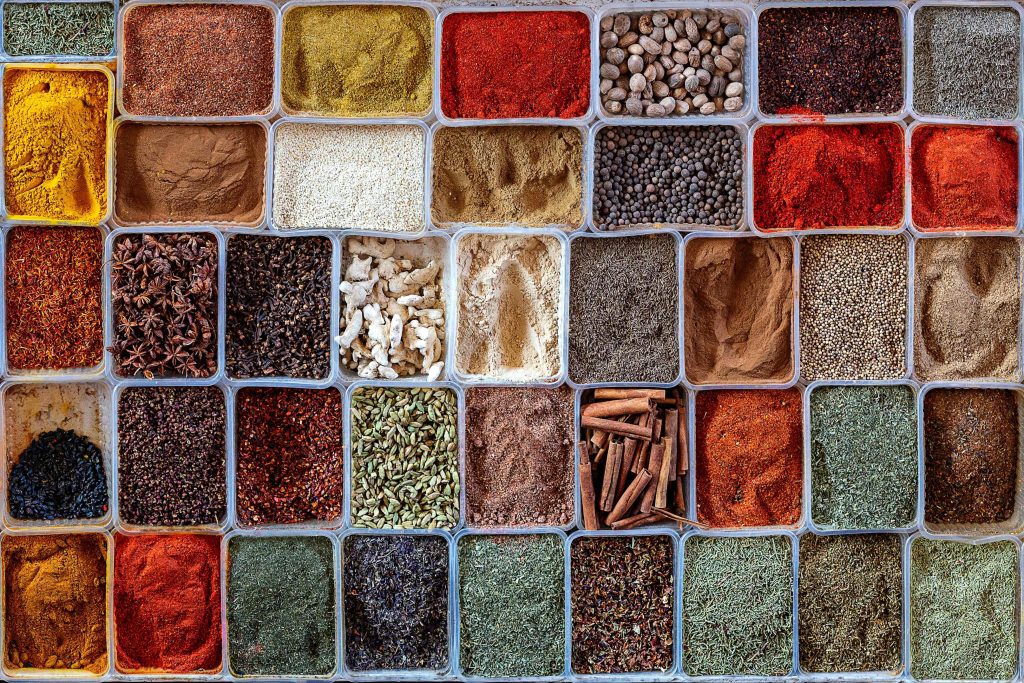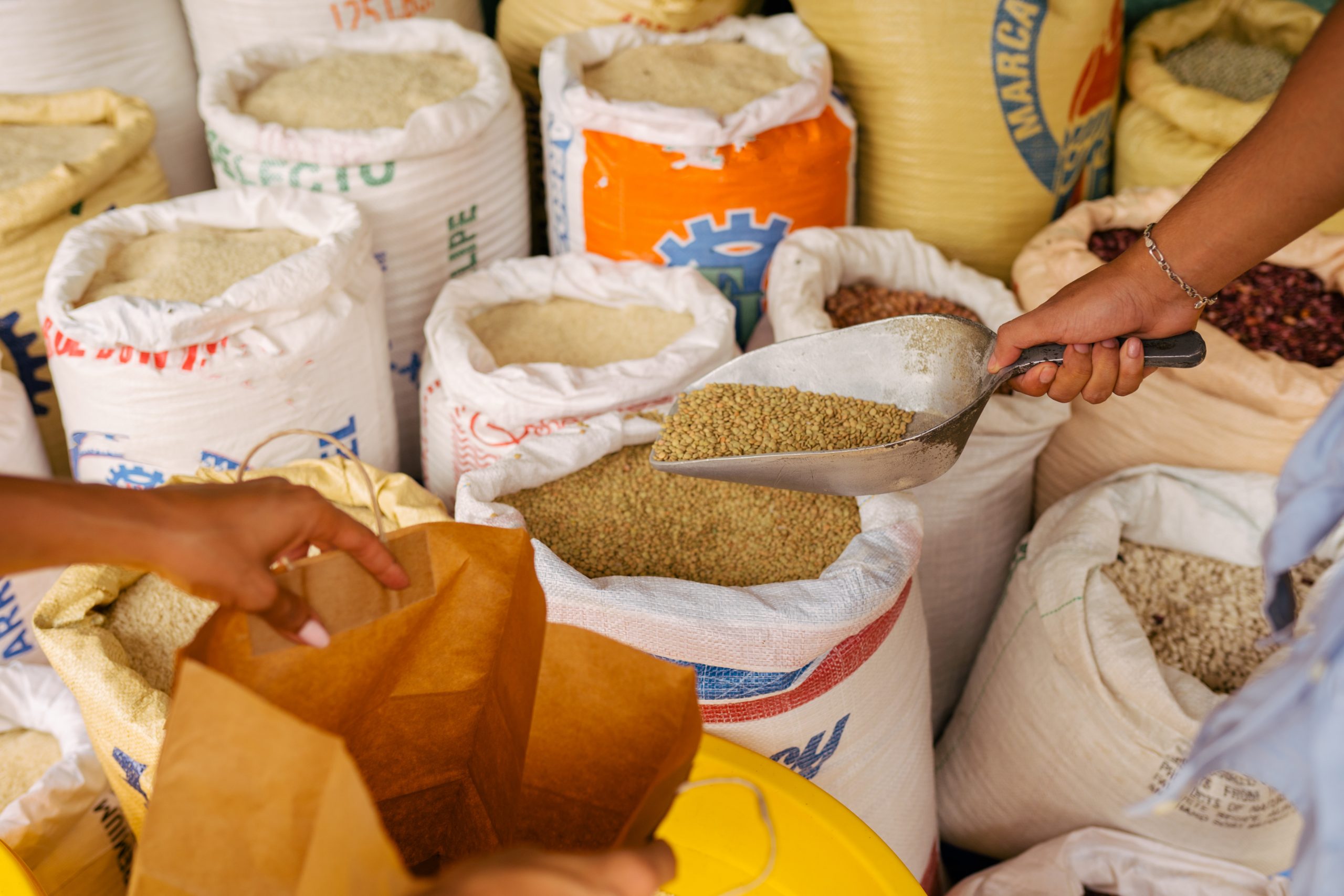The Tea
When we talk about cooking, the right selection of spices can work wonders. They have the power to elevate a simple meal to a culinary marvel. Below we will investigate different essential spices every kitchen should have, making it easier for you to answer the question, “What spices do I actually need?”
The Brew
7 essential spices that every home cook needs for more flavorful cooking
These spices not only boost flavor, but also carry cultural importance and potential health advantages.
1. Turmeric – The Golden Spice
Turmeric, with its enchanting golden color, offers a unique taste that fuses earthiness and bitterness, enriching the overall flavor of different dishes. It’s the spice that adds brilliant color to Indian curries, side dishes, and street food. Just keep in mind that using too much turmeric can make your dish overly bitter.
In addition to its culinary charm, turmeric provides amazing health benefits, such as anticancer, antioxidant, and anti-inflammatory properties. It’s no surprise that Ayurveda, the ancient Indian healing practice, encourages the use of turmeric as a medicinal spice and one of the essential spices that we all need in our kitchen.
2. Cinnamon – Versatile & Aromatic
Imagine the spicy and warm odor of cinnamon coming from your kitchen. This extremely versatile spice is suitable for both savory and sweet dishes. Cinnamon enriches the taste of virtually any dish, whether it’s a European festive cake or a Moroccan tagine.
Besides its pleasing taste, cinnamon has other benefits. It can aid in controlling blood sugar, managing cholesterol, supporting digestion, and boosting antioxidants in your everyday meals. Truly, it’s one of the most essential spices for your cupboard.

3. Bay Leaves – Aromatic Excellence
With their earthy herbal aroma and touch of bitterness, bay leaves silently take center stage as essential seasonings in your spice rack. They are the key to the delightful flavors of French, Italian, Greek, Indian, and Eastern European cuisines, frequently used in soups, sauces, and stews. But it’s not just their taste; bay leaves can help in digestion and provide antioxidants such as vitamin E and vitamin C to your food.
4. Paprika – From Mild to Hot
Paprika offers a range of flavors, from mild to fiery, and a spectrum of colors, from lively orange to a deep red color. This spice adds a rich taste to many dishes like Mexican bean stew and Hungarian goulash.
But paprika’s benefits extends beyond flavor; it provides ample health perks too. It can lower the risk of cancer, guard against UV rays, and decrease abdominal fat. Additionally, it’s packed with important nutrients like phosphorus, calcium, and potassium.
5. Oregano – The Pizza Spice
Oregano is the spice that adds the perfect blend of sweetness and spiciness to your favorite pizzas. But it doesn’t stop there; oregano stands out in pickled olives, sauces, salads, and even meats.
Besides its role in cooking, this spice has a background in herbal medicine. It can help relieve digestive problems and has been utilized for issues such as sore throats and headaches. Greece utilizes oregano to flavor pickled olives, and in Turkey, it is an important ingredient of doner kebabs, revealing how it can be utilized by every home cook to improve their recipes and their health.
6. Cloves – Therapeutic and Aromatic
The strong aroma and spicy taste of cloves enhance both savory and sweet dishes. Cloves have been a vital ingredient of European cuisine for a long time, helping to preserve, flavor, and garnish foods.
But cloves have many benefits beyond delightful taste. They can provide relief from pain when used topically, offer antioxidants, and calm upset stomachs. In traditional Chinese and Ayurvedic medicines, cloves are often used, highlighting their significance as essential spices with many health benefits.
7. Saffron – The Golden Elixir
The final essential spice on our list of spices is saffron. This beautiful yellow spice adds a touch of luxury to your dishes, releasing an aroma similar to honey. This spice enhances recipes such as Spanish paella, Iranian jeweled rice, and even Swedish cinnamon buns due to its yellow-orange color and distinctive flavor.
Apart from its role in cooking saffron holds a fascinating history. It’s been utilized in perfumery, fabric dyeing, and even religious ceremonies. Saffron may provide different health benefits like digestive support antioxidants, mood enhancement, and antioxidants.

The Pour
These seven must-have spices, each with their own distinct flavors and potential health perks, act as your culinary key to global flavors. They provide rich taste, cultural diversity, and health benefits to your kitchen. Experiment and enjoy the diverse spectrum of flavors they provide. Your kitchen is your creative space, and these essential spices are the tools.






















0 Comments for “Spice Up Your Kitchen: 7 Globally Inspired Spices You Need For More Flavorful Cooking”